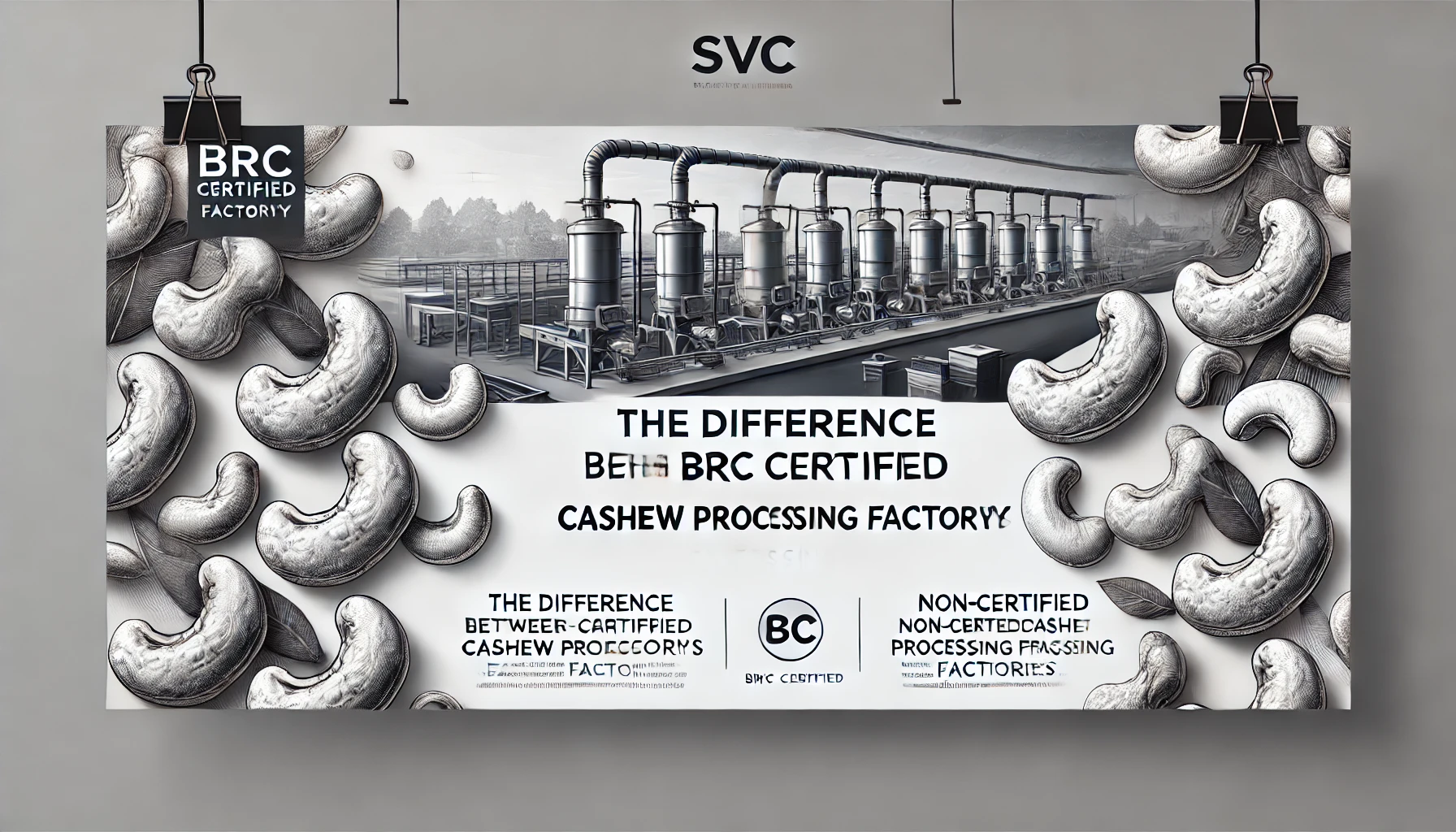In the cashew processing and export industry, achieving BRC Certified status is not just about certification; it represents a commitment to food safety, product quality, and operational excellence. Factories that meet BRC Certified standards gain a competitive edge over non-certified facilities in terms of safety, consistency, and global market access. Below is a comprehensive comparison between the two:
1. Food Safety Standards
✅ BRC Certified Factories
• Follow strict food safety protocols, ensuring that every stage—from raw material sourcing to packaging—meets global safety standards.
• Implement HACCP (Hazard Analysis and Critical Control Points) to identify, monitor, and prevent contamination risks.
• Maintain a highly regulated and hygienic production environment, minimizing microbial and chemical hazards.
❌ Non-Certified Factories
• Lack structured risk control systems, increasing the likelihood of contamination, chemical residues, and foreign materials.
• Operate with inconsistent hygiene practices, leading to significant product safety risks.
2. Product Quality & Consistency
✅ BRC Certified Factories
• Deliver uniform, high-quality cashew products, adhering to strict size, moisture, and texture standards.
• Utilize modern sorting and processing technology, ensuring product consistency.
• Maintain full traceability systems, allowing customers to track the product’s journey from farm to factory.
❌ Non-Certified Factories
• Lack strict quality control processes, resulting in inconsistent products.
• Higher risks of foreign materials, moisture issues, and uneven sizing, making the products less competitive in premium markets.
3. Access to International Markets
✅ BRC Certified Factories
• Easily access high-value markets such as the U.S., Europe, and Japan, where food safety regulations are strict.
• Are preferred by global retailers, distributors, and importers looking for compliant and reliable suppliers.
• Enhance brand reputation and competitiveness in international markets.
❌ Non-Certified Factories
• Limited access to major markets, often restricted to smaller buyers with lower safety requirements.
• Struggle to secure long-term contracts with leading global food brands.
4. Risk Management & Compliance
✅ BRC Certified Factories
• Reduce legal and financial risks by adhering to global food safety laws, minimizing the chances of product recalls or import restrictions.
• Undergo regular third-party audits, ensuring compliance with the latest international food safety requirements.
❌ Non-Certified Factories
• Have a higher risk of non-compliance, leading to rejected shipments, financial losses, and reputational damage.
• Often fail to meet evolving import regulations, limiting their export opportunities.
5. SVC – A BRC Certified Cashew Supplier
As a leading BRC Certified cashew processing factory, SVC prioritizes quality, food safety, and sustainability at every stage of production. With state-of-the-art facilities and strict compliance protocols, SVC ensures its cashew products consistently meet international export standards, making it a trusted partner in the global cashew industry.
Conclusion
The difference between BRC Certified and non-certified cashew factories is clear—BRC Certified facilities offer superior food safety, product quality, and global market access. Businesses seeking high-quality, reliable cashew suppliers should partner with a BRC Certified processor like SVC, ensuring compliance with international regulations while securing long-term success in the global market.
SVC INTERNATIONAL JSC
Email: thanh@svc.vn
Phone: 090 943 24 77
WhatsApp: Click here

